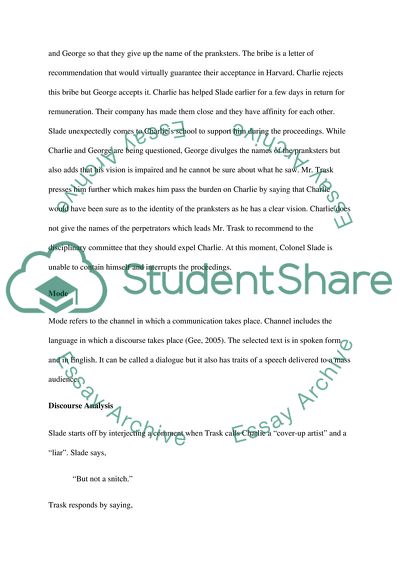Cite this document
(Discourse in a Scripted Dialogue From the Movie Scent of a Woman Assignment, n.d.)
Discourse in a Scripted Dialogue From the Movie Scent of a Woman Assignment. https://studentshare.org/visual-arts-film-studies/1810705-analyse-a-discourses-in-discourses-and-variation-subject
Discourse in a Scripted Dialogue From the Movie Scent of a Woman Assignment. https://studentshare.org/visual-arts-film-studies/1810705-analyse-a-discourses-in-discourses-and-variation-subject
(Discourse in a Scripted Dialogue From the Movie Scent of a Woman Assignment)
Discourse in a Scripted Dialogue From the Movie Scent of a Woman Assignment. https://studentshare.org/visual-arts-film-studies/1810705-analyse-a-discourses-in-discourses-and-variation-subject.
Discourse in a Scripted Dialogue From the Movie Scent of a Woman Assignment. https://studentshare.org/visual-arts-film-studies/1810705-analyse-a-discourses-in-discourses-and-variation-subject.
“Discourse in a Scripted Dialogue From the Movie Scent of a Woman Assignment”. https://studentshare.org/visual-arts-film-studies/1810705-analyse-a-discourses-in-discourses-and-variation-subject.


